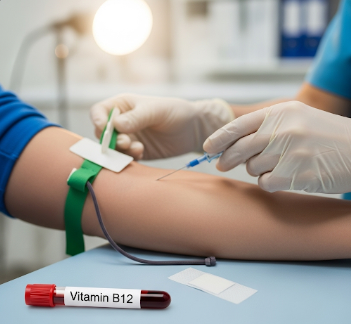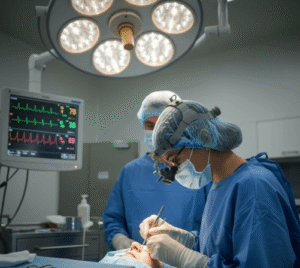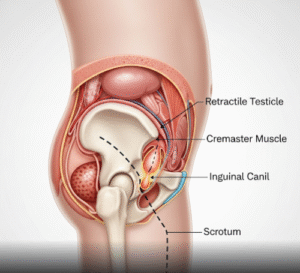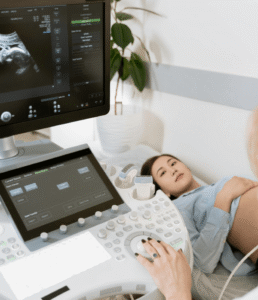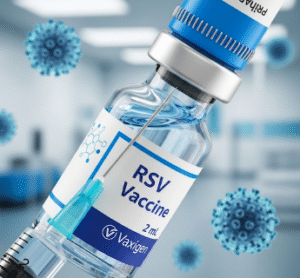Overview
A Vitamin B12 test is a blood test used to measure the level of vitamin B12 in the body. Vitamin B12 is essential for red blood cell production, nerve function, and DNA synthesis. Deficiency can lead to fatigue, anemia, neurological problems, and cognitive difficulties.
South Korea offers advanced laboratory testing with high precision, quick results, and expert consultation, making it a preferred destination for both residents and international patients seeking accurate B12 level assessment.
This test is recommended for individuals who:
- ➤ Experience persistent fatigue, weakness, or pallor
- ➤ Have neurological symptoms such as numbness, tingling, or memory issues
- ➤ Are vegetarians or vegans, as plant-based diets often lack B12
- ➤ Have conditions affecting absorption, like Crohn’s disease or gastric surgery
- ➤ Are on long-term medications like metformin or proton pump inhibitors
What is the Vitamin B12 Test?
The Vitamin B12 test measures serum or plasma B12 levels to evaluate whether an individual has adequate, borderline, or deficient vitamin B12 levels.
Types of tests include:
- ➤ Serum B12 test: Standard test measuring B12 concentration in blood
- ➤ Methylmalonic acid (MMA) test: Detects functional B12 deficiency
- ➤ Homocysteine test: Elevated levels may indicate B12 deficiency
- ➤ Holotranscobalamin test: Measures active B12 available to cells
Key points:
- The test is simple, minimally invasive, and usually completed within minutes
- Results are interpreted alongside clinical symptoms and additional tests
- Early detection allows prevention of irreversible neurological damage
What are the Benefits?
✔ Early detection of vitamin B12 deficiency before serious complications occur
✔ Prevention of anemia, neurological issues, and cognitive decline
✔ Tailored supplementation guidance based on accurate lab results
✔ Safe, minimally invasive blood test with rapid results
✔ Korean hospitals provide high-quality labs, expert consultation, and follow-up care
Additional benefits include:
- ➤ Supports overall energy, mood, and metabolism
- ➤ Helps patients with chronic fatigue, neuropathy, or unexplained anemia
- ➤ Enables monitoring of B12 therapy effectiveness
Procedure Details:
1) How should I prepare for Vitamin B12 Test?
- ● Fasting: Some labs may require fasting for 8–12 hours, especially if B12 is measured alongside other vitamins
- ● Medication review: Certain medications (e.g., metformin, proton pump inhibitors) may affect B12 levels
- ● Medical history: Inform the lab of existing conditions, dietary habits, and recent B12 supplementation
- ● Hydration: Drink water before the test to make blood draw easier
- ● Korean hospitals: Provide clear pre-test instructions, multilingual support, and patient counseling
2) What happens during the procedure Vitamin B12 Test?
- ➤ Blood sample collection:
- A small blood sample is drawn from a vein, usually in the arm
- The procedure takes 1–5 minutes
- ➤ Labeling and processing: Blood sample sent to laboratory for analysis
- ➤ Testing methods:
- Chemiluminescent immunoassay (CLIA) or enzyme-linked immunosorbent assay (ELISA)
- Some labs also perform MMA or homocysteine testing for functional deficiency
- ➤ Duration: Entire visit usually under 15 minutes
- ➤ Korean advantage: Hospitals utilize state-of-the-art labs with rapid turnaround and highly accurate testing
3) What happens after Vitamin B12 Test?
- ● Results: Typically available within hours to 1–2 days
- ● Interpretation:
- Normal B12 levels: 200–900 pg/mL (varies by lab)
- Borderline: 150–200 pg/mL
- Deficient: <150 pg/mL
- ● Follow-up: Your doctor may recommend:
- Dietary changes (B12-rich foods like meat, fish, dairy)
- Oral supplements or injections for severe deficiency
- Further testing if results are borderline or symptoms persist
- ● Korean hospitals: Offer comprehensive consultation, treatment plans, and follow-up testing
Risks / Benefits
✔ Benefits:
- ✦ Detects vitamin B12 deficiency before serious complications
- ✦ Guides supplementation and diet modification
- ✦ Monitors therapy effectiveness
- ✦ Safe, minimally invasive, and quick
⚠ Possible Risks (rare):
- ➔ Mild pain or bruising at the puncture site
- ➔ Slight dizziness or fainting during blood draw
- ➔ Infection at the puncture site (extremely rare)
- ➔ Minor bleeding or swelling
Recovery and Outlook
- ➤ Immediate recovery: No downtime; normal activities can resume immediately
- ➤ Pain management: Usually none required; mild bruising resolves in 1–2 days
- ➤ Dietary and supplementation guidance: Based on test results
- ➤ Long-term outlook: Early detection prevents anemia, neurological complications, and fatigue
- ➤ Korean advantage: Advanced labs and expert nutritionists ensure accurate diagnosis, treatment, and prevention of recurrence
When To Call the Doctor
Patients should contact their doctor if they notice:
- ⚠ Persistent fatigue or weakness despite normal B12 levels
- ⚠ Neurological symptoms like numbness, tingling, or balance issues
- ⚠ Anemia signs such as pale skin or shortness of breath
- ⚠ Any abnormal lab results requiring follow-up or treatment
Best Korea Option / Process
South Korea offers top-quality Vitamin B12 testing due to:
- 🌟 Highly accurate laboratories with advanced testing equipment
- 🌟 Specialized medical professionals for interpretation and consultation
- 🌟 Quick turnaround times for test results
- 🌟 Comprehensive care including dietary guidance and supplementation
- 🌟 Multilingual support for international patients seeking preventive or diagnostic testing
Top Korean Hospitals for Vitamin B12 Testing:
- ✅ Seoul National University Hospital (Laboratory & Nutrition Dept.)
- ✅ Asan Medical Center
- ✅ Samsung Medical Center
- ✅ Severance Hospital (Yonsei University)
- ✅ Bundang CHA Hospital
✅ Quick Highlights Recap
- ➤ Measures B12 levels to detect deficiency
- ➤ Prevents anemia, fatigue, neurological complications, and cognitive issues
- ➤ Safe, minimally invasive blood test with quick results
- ➤ Rare risks, mostly minor and temporary

